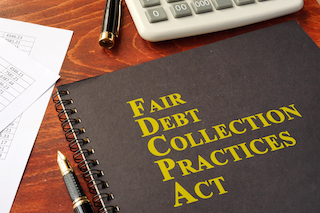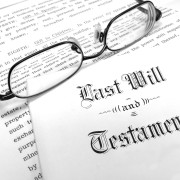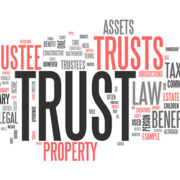How Do Businesses Collect a Debt?
Cleveland, Ohio, business law firm, Baron Law LLC, Cleveland, Ohio, answers questions on the laws which need to be followed when attempting to collect a debt. For more comprehensive information contact Baron Law Cleveland to schedule an appointment if you have found yourself in a situation where you are unable to collect a debt.
Unfortunately, people don’t pay their bills on time, sometimes not at all. This is just a reality of business. Tenants fail to pay rent, purchasers don’t pay in full, and business associates don’t uphold their end of the bargain. Naturally, the human reaction is to immediately go after wrongful parties and get what you’re owed. In reality, however, debt collection is not a simple and straight forward process. That is why third-party collectors are often used. However, over the many decades and centuries of business, whether a legitimate debt was owed or not, these collectors went too far in attempting to right a wrong. In response, nowadays there are rules and regulations governing debt collection practices to prevent misconduct. As such, cavalier or aggressive debt collection practices can, ironically, make a legitimate debtor liable for more than the debt they are trying to collect on. This is why contacting the services of a local Cleveland area business attorney is so critical. A single lawsuit over debt collection misconduct can ruin a quarter, but longtime or routine debt collection misconduct can lead to bankruptcy via litigation.
- What laws apply when I’m trying to collect a debt?
The three main laws that every third-party debt collector should be aware of when collecting debts is 1) the Fair Debt Collection Practices Act, 2) the Ohio Fair Debt Collection Practices Act, and 3) the Consumers Sales Practices Act.
- FDCPA – this federal law limits the behavior and methods of third-party debt collectors who are trying to collect a debt for another, whether a real person or otherwise. Within are rules regarding timing, method, and form of contact, causes of action for misconduct, and duties of specialized debt collection personnel.
- OFDCPA – This Act primarily concerns the legal conventions and guidelines that must be observed when a debt is assigned for collection by another, i.e. a third-party creditor. The Ohio FDCPA adds additional safeguards to the Federal FDCPA in order to ensure assignees of debts are legitimate businesses with legitimate credit claims.
- CSPA – this law primarily provides causes of action for deceptive trade practices, of which debt collection is regularly a context. Various Ohio courts have said that various violations of the FDCPA constitute a violation of the CSPA in that the purpose of both acts is to prohibit both unfair and deceptive acts and any violation of the FDCPA is necessarily an unfair and deceptive act or practice in violation of the CSPA.
What are the things I can’t do when collecting a debt?
Simply, a third-party debt collector cannot engage in deceptive trade practices. What is a deceptive trade practice is a much litigated issue. However, the particulars of what conduct constitutes a deceptive trade practice are too numerous to go over here, but a local Ohio business attorney will be more than happy to fill you in on the details and makes sure you’re not violating State and/or Federal law.
The short answer though, in the context of debt collection, is that a deceptive trade practice is an activity by an individual or business that is meant to mislead or lure a debtor into paying a debt that isn’t owed, paying more than is owed, attempting to collect in an aggressive, harassing, offensive manner or failing to follow proper form when communicating with a debtor. Within the FDCPA, OFDCPA, and CSPA, there are sections which explicitly state that a violation or one or more provisions of the law is conclusively a deceptive trade practice thus justifying damages.
How much lability could I be facing for improper debt collection?
Just under the FDCPA alone, any debt collector who fails to comply with any provision of this law with respect to any person is liable to such person in an amount equal to the sum of
(1) any actual damage sustained by such person as a result of such failure;
(2) additional damages up to $1,000; and/or
(3) reasonable attorney’s fees if the court finds them justified.
How do I make sure I’m not breaking the law when trying to collect?
State and federal law must be followed to the letter when attempting in collect on a third-party debt. An Ohio business attorney can create a compliant debt collection program, complete with compliant forms and communications, to ensure any legitimate debt isn’t consumed by legal damages.
There are, however, some standard methods to remain compliant under state and federal law.
- Mini Miranda Notice – the law requires that any debt collector inform a debtor in the initial communication that “this communication is from a debtor collector. This is an attempt to collect a debt and any information obtained will be used for that purpose.” This is commonly called the mini-Miranda and puts the debtor on notice of who they are speaking with and why. If the first communication with the debtor is oral, this notice must be given orally and included in the first written communication. Regardless of who initiates communication, this notice must be given.
- Debt Validation Notice – every third-party collector must within 5 days of the initial communication send the debtor written notice containing the following:
1) the amount of the debt,
2) name of creditor that’s owed the debt,
3) statement that unless the consumer, within thirty days after receipt of the notice, disputes the validity of the debt, or any portion thereof, the debt will be assumed to be valid by the debt collector,
(4) a statement that if the consumer notifies the debt collector in writing within the thirty-day period that the debt, or any portion thereof, is disputed, the debt collector will obtain verification of the debt or a copy of a judgment against the consumer and a copy of such verification or judgment will be mailed to the consumer by the debt collector, and
(5) a statement that, upon the consumer’s written request within the thirty-day period, the debt collector will provide the consumer with the name and address of the original creditor, if different from the current creditor.
The purpose of this notice is to inform debtor of important rights, timing deadlines, and authenticity of the debt being pursued.
It is never fun for either the debtor, creditor, or collector to pursue an outstanding debt. Feelings get hurt, lives are disrupted, and valuable business resources and time is wasted. Therefore, it is wise to ensure that state and federal laws are not being broken on top of all that. Throwing potential litigation in with the contentious profession of debt collection begs for trouble. As such, wise debt collectors retain the counsel and guidance of experienced business attorneys to enable them to focus on recovering debts, not worrying about compliance with government rules and regulations.
You don’t have to be rich to protect what you’ve spent a lifetime trying to build. To find out whether a trust is right for your family, take the one-minute questionnaire at www.DoIneedaTrust.com. There are a number of different trusts available and the choices are infinite. With every scenario, careful consideration of every trust planning strategy should be considered for the maximum asset protection and tax savings. For more information, you can contact Mike Benjamin of Baron Law LLC at 216-573-3723. Baron Law LLC is a Cleveland, Ohio area law firm focusing on estate planning and elder law. Mike can also be reached at mike@baronlawcleveland.com.
Helping You And Your Loved Ones Plan For The Future
About the author: Mike E. Benjamin, Esq.
Mike is a contracted attorney at Baron Law LLC who specializes in civil litigation, estate planning, and probate law. He is a member of the Westshore Bar Association, the Ohio State Bar Association, the Cleveland Metropolitan Bar Association, and the Federal Bar Association for the Northern District of Ohio. He can be reached at mike@baronlawcleveland.com.











